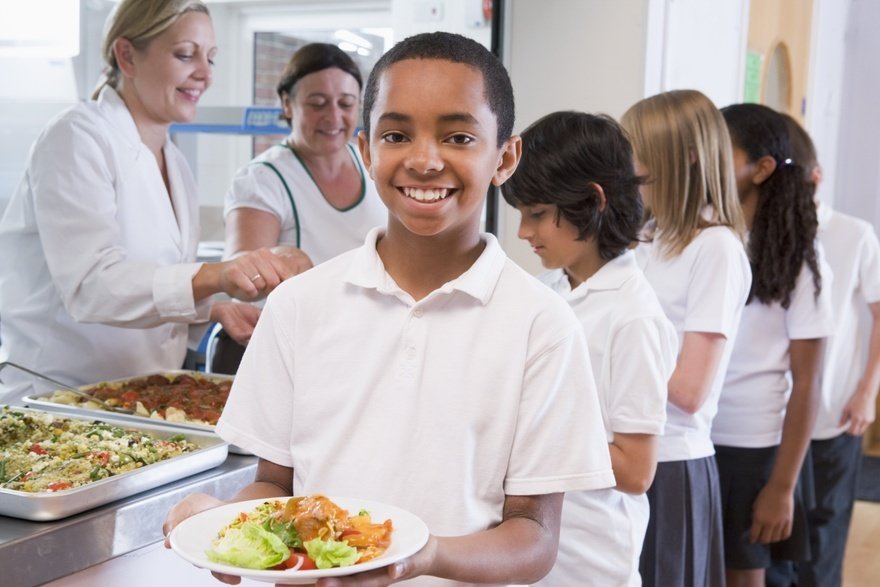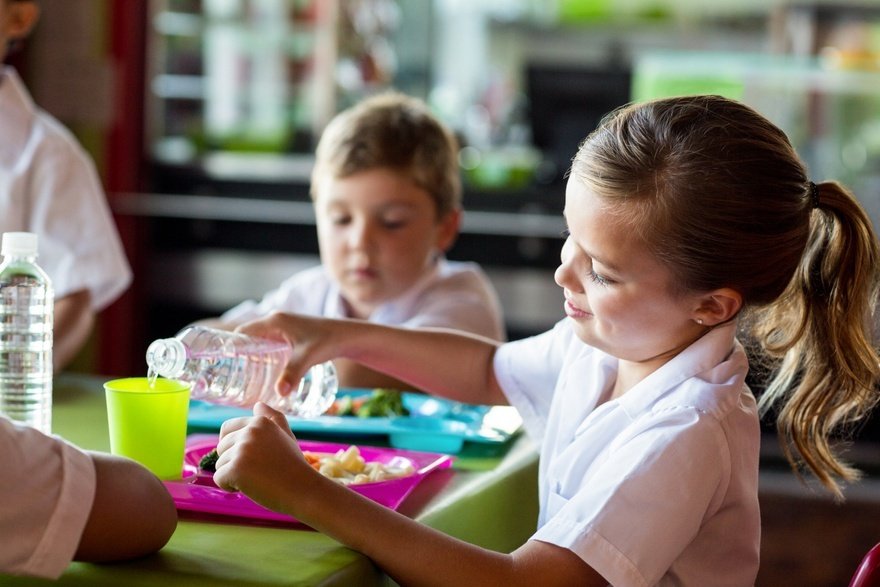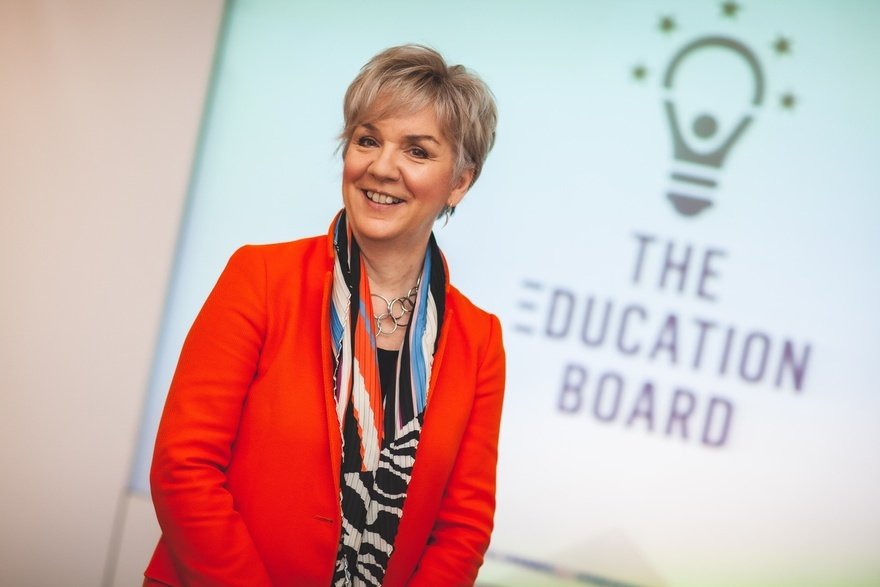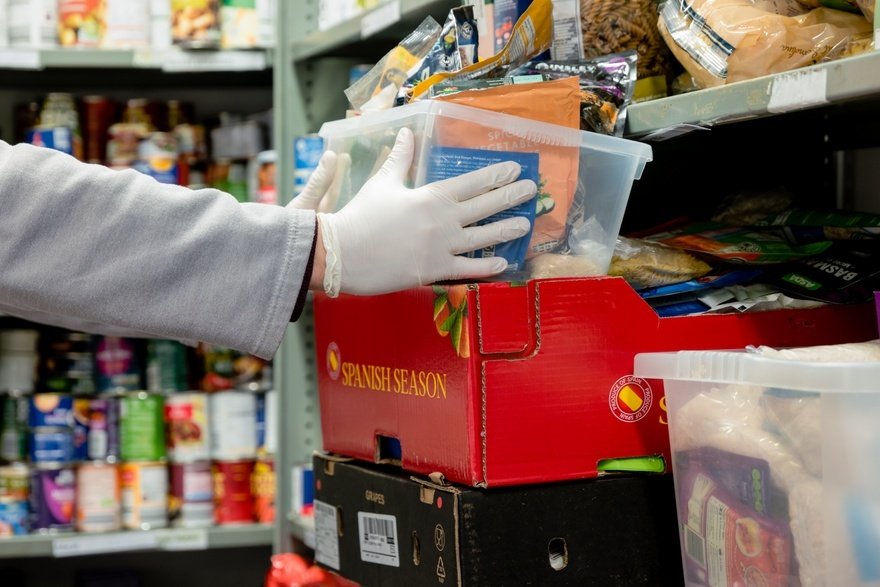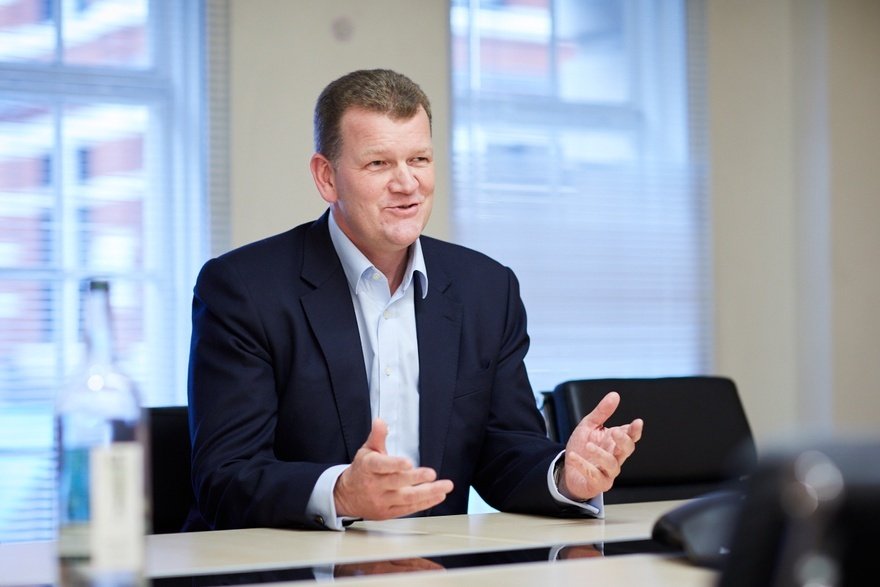Footballer Marcus Rashford has been applauded for the work he has already done in protecting and feeding vulnerable children, and now it's time to take his fight further, to combine his enthusiasm with caterers' expertise in the campaign to end child hunger. Ben Walker reports.
Marcus Rashford MBE, the Manchester United and England striker, has become an unlikely unifying force in coronavirus Britain. Not for his prowess on the pitch, but for his remarkable campaign against child food poverty.
In June, after raising public awareness and gaining cross-party support from MPs, he forced prime minister Boris Johnson to make a policy U-turn and continue to fund free school meal vouchers during the summer holidays. This month he was made an MBE "for services to vulnerable children during Covid-19."
Foodservice leaders have praised Rashford's intervention. Mark Davies, managing director at ISS UK Food Services, says: "Putting aside football rivalries, as a young man in his prime, to take the time and effort to be so endearing but also so clear and passionate about what he believes… I was super-impressed."
Charlie Brown, managing director at Chartwells – Compass Group's education arm – adds: "We fully support his campaign and are keen to work with him on the provision of school meals, as this is an area that can make a huge difference to young lives. We really hope this campaign gains traction and gets results."
"He is a good role model because it's not just about eating well. It's about fitness too," adds Stephen Forster, national chair of LACA, the trade body that represents the majority of school caterers in England and Wales.
Food banks to football
The youngest of five, Rashford grew up in a single-parent household in Wythenshawe, an area of Manchester with one of the largest council estates in Europe. In a series of emotive media interviews, he remembered hearing his mother crying at bedtimes because she was struggling financially. The family sometimes visited food banks and Rashford qualified for free breakfasts and lunches at school.
Writing on Twitter, Rashford highlights the importance of his school's breakfast club to his development: "Not only did it guarantee that I had fuel to sustain the day and really engage in learning, but it is where I formed my life friendships."
At a time of increasing hardship for many families, Rashford has emerged as a successful campaigner, not just because of his celebrity status, but also his authentic back story.
"It's more than empathy because it's his history and his direct experience," observes Davies. "He has gone through [child food poverty] himself."
The issue of vulnerable children going hungry during school holidays is not new. Andy Kemp, group sales and marketing director at Bidfood, is a long-standing campaigner in this area. As part of a series of holiday hunger events, Kemp joined Michelin-starred chef Michael Caines in Plymouth last summer (this wasn't repeated this year due to coronavirus restrictions).
Kemp recalls: "When we opened our doors, there were queues of kids as far as the eye could see. Many families had walked miles because they couldn't afford the bus fare. I was struck by how polite and orderly the children were. There wasn't a scramble. They put all their litter in the bins. At the end of the day Michael was in tears. My only thought as I drove home was: who is going to feed them tomorrow?"
Through his first-hand experience of organising and funding holiday hunger initiatives, Kemp has learned that child food poverty is by no means confined to deprived inner-city areas. It exists right across the country. For those who do not work in education or with families, child food poverty may go unnoticed, but government statistics show there are 4.2 million UK children living in poverty. That's 30% of all children: one of the highest rates in Europe.
"There is a massive issue with child food poverty," says Kemp, who sits on the All-Party Parliamentary Group on School Food. "That's why Marcus has been so effective, because he's made the issue very public."
Growing the team
Rashford's success this summer was a short-term solution. He quickly followed it up by launching the Child Food Poverty Taskforce, gaining the support of major supermarkets and food charities.
The Taskforce has three goals: to increase the entitlement to free school meals to all households on Universal Credit; to expand the provision of food and activities to cover all holidays for children entitled to free school meals; and to raise the value of healthy start vouchers (from £3.10 to £4.25) for pregnant women and Universal Credit households with children under the age of four.
"I was pleased that Marcus has focused on three key National Food Strategy recommendations, especially expanding the eligibility of free school meals," says Brad Pearce, managing director for Catered and vice-chair elect of LACA, which has long campaigned for free school meals to be extended.
Not everyone on Universal Credit qualifies for free school meals, so the policy recommendation is aimed at families on the borderline, those who are just about managing. If implemented, it would benefit an additional 1.5 million children, from seven to 16 years old.
"It's that poverty trap," explains Vic Laws of AVL Consultancy. "Families with, say, three kids who need to pay £6.60 a day for three lunches; Covid has made these people more vulnerable."
Free school meal entitlement is on the rise in any case, notes Laws, because of income loss and increasing unemployment. Even before the end of the furlough scheme, data from the Food Foundation confirms the negative impact of the pandemic on family finances. Almost one million children were newly registered for free school meals in September.
Hot meals back on the menu
The school meal sector is currently pushing the importance of providing hot meals. "As we head into the colder, darker and wetter days, when the school lunch could be the only opportunity for some pupils to have a hot meal, we are working to get hot food back on the menu wherever we can," says Pearce.
Davies adds: "We see higher uptake at schools where we started on hot meals and lower uptake at schools that have asked us just to provide packed lunches [due to Covid-related logistics]."
Orleans primary school in Twickenham has served hot meals from the first day of term. Business manager Lauren Drake says: "We were really keen to get as many children eating hot meals as possible from day one, and we've succeeded."
LACA is running a campaign to restart hot meals throughout October. Forster says: "It is important we encourage parents, who can do so, to pay for hot school meals again, which will further support the sustainability of the service in helping those most in need."
Supermarkets versus caterers
Despite the school meal industry being central to Rashford's campaign, there are currently no school caterers on his taskforce. Although foodservice leaders are universally appreciative of what Rashford has achieved, this omission has raised eyebrows.
"He's tied up with the supermarkets, and their objective is to encourage vouchers for parents for free school meals. That doesn't necessarily provide a kid with a healthy meal," reckons Laws, noting that only a tiny percentage of packed lunches meet the School Food Standards. "I'd much rather see a campaign that promotes the provision of hot, nutritious meals to children."
At Orleans primary school, the caterer ISS provided meal packs containing a balanced selection of protein and fruit and vegetable for vulnerable families during the summer. But as soon as Rashford's supermarket vouchers were available, most families switched.
"Families really liked the food vouchers because it meant they could go and choose what they wanted," says Drake.
"Who would refuse a £10 voucher?" adds Forster. "And obviously the supermarkets have some vested interest here."
Caterers agree that something is better than nothing, but if supermarket vouchers were to remain a central part of Rashford's campaign, they could actually work against the uptake of hot meals or healthy meal parcels during holidays.
Foodservice leaders underline that it's important for Rashford to align himself with people like Henry Dimbleby, the author of the National Food Strategy, which is where the footballer's three recommendations come from; and organisations like LACA, which understand the school meals industry inside out. For Rashford's Taskforce to remain a retail-dominated initiative without the educational input and expertise of the school meal industry would be a mistake, they say.
"I would like to see this current movement go even further, with a full-on national strategy that educates all of us in the importance of good nutrition for children. Foodservice companies have a role and responsibility in this, too," insists Deborah Homshaw of CH&Co Education.
I would like to see this current movement go even further, with a full-on national strategy that educates all of us in the importance of good nutrition for children
"Hopefully he will pick up with the right people," says Kemp. "I think he'll be surprised by how big his campaign has become, because he's a very humble guy."
Kemp, who has written a letter of support to Rashford, reckons the footballer will be swamped by food sponsorship and endorsement offers. His advisers, more used to the world of football, may not be best placed to deal with this.
For his part, Rashford has expressed a schoolboy fondness for Nestlé Milky Bar yogurts.
School's out
Except in Wales, food provision for the vulnerable during the coming holidays will again return to a patchwork of voluntary and charitable schemes. School caterers work with charities such as FareShare and the Food Foundation, which are on Rashford's Taskforce. Still, in the absence of a national, funded policy, there is the risk that some vulnerable children and families will slip through the net.
"When something like a holiday hunger programme has to rely on volunteering rather than government funding, that doesn't feel right to me," says Davies. "That's why I think Marcus's campaign is absolutely spot-on."
When something like a holiday hunger programme has to rely on volunteering rather than government funding, that doesn't feel right to me. That's why I think Marcus's campaign is absolutely spot-on
"How on earth can society turn its back on millions of children often living at starvation levels while they are not in school?" asks Kemp.
A positive consequence of the pandemic has been to nurture a community spirit of caring and solidarity. Many education caterers went the extra mile during lockdown, performing additional work such as preparing meal parcels and delivering them personally to families who qualify for free school meals.
In conjunction with Public Health England and the Department of Health, LACA has published guidelines on the preparation of food parcels. A LACA survey showed that 57% of the school food industry were still working during the lockdown in April and 24% had been furloughed.
Homshaw says: "I couldn't be prouder of how all our teams have stepped up to the plate throughout this. Regardless of their own anxieties and circumstances, they've adapted to ensure the children continue to be served."
Pearce adds: "School catering is an amazing industry, staffed by some of the most committed and caring people."
The education division of ISS serves 120,000 meals a day in 550 schools. Compared to other parts of the business, most notably B&I, it is up and running, albeit at 85% capacity compared to the same time last year.
In another legacy of community outreach during the lockdown, ISS is conducting research into the use of school kitchens. Davies explains: "The kitchens are largely used for lunch services from Monday to Friday in term-time. But, actually, if you were to look at them as community kitchens, supporting breakfast and out-of-hours community catering, care home catering, holiday hunger clubs, then it would be a good use of the skills in the team and also the facility."
Brown of Chartwells adds: "One major learning from Covid has been that the health of the nation is critical and food and nutrition is a huge part of this. School meals level the playing field, getting children into good eating habits from an early age."
Looking ahead
There was no mention of holiday hunger or school meals in chancellor Rishi Sunak's Winter Economy Plan. No further budget announcements are expected until spring 2021. For now, Downing Street has rebuffed Rashford's three recommendations, while the Welsh government has pledged free school meal vouchers or food parcels during holidays until spring 2021.
Rashford is keeping up the pressure with a petition for parliament signed by nearly 300,000. He says on Twitter: "The drive of myself and the Child Food Poverty Taskforce to see these three government policies implemented is stronger than ever."
The school meals sector has a powerful new advocate – a softly spoken and tenacious 22-year-old footballer. The hope now is that Rashford's taskforce will grow, develop and embrace the campaigning, expertise and professionalism of the school caterers who are on the front line of feeding the nation's children.
Brakes joins the taskforce
Foodservice supplier Brakes is supporting Marcus Rashford's Child Food Poverty Taskforce with the aim of expanding holiday provision to support all children on free school meals through its Meals & More charity.
Hugo Mahoney, Brakes' chief executive, said: "The Child Food Poverty Taskforce has an incredibly important role to play in today's very difficult climate, with many families struggling to put food on the table. We applaud the amazing job Marcus has done in shining a light on this important issue and are ready to play our part in supporting its aims."
Meals & More has already provided around 500,000 meals for the nation's most vulnerable children since it started in 2015. It supports food provision at more than 150 clubs a year, which give more than 10,000 children the opportunity to take part in activities, enjoy healthy food and avoid the social isolation which often results from poverty.
Mahoney added: "As a wholesale supplier to many thousands of restaurants, pubs and catering venues, we understand the important role that food plays at the heart of communities. We look forward to combining forces with other members of the taskforce, and many of our customers, to create a movement to end child food poverty."
Images from Shutterstock
Continue reading
You need to be a premium member to view this. Subscribe from just 99p per week.
Already subscribed? Log In


